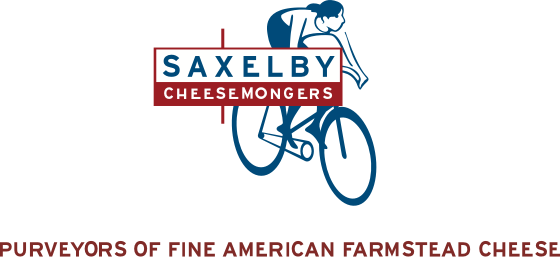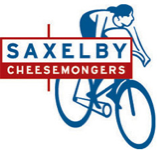
There's no finer raclette style cheese being made in the United States than Spring Brook Farm's Reading Raclette.
Raclette is the name of an Alpine style cheese and a dish made from it. A wheel of cheese is split down the middle to expose the inner paste, then turned on its side and heated under a broiler until the surface melts and blisters. This melted layer is then scraped onto a plate of boiled potatoes, pickled onions, and cornichons for a rib-sticking celebration of cheese in its stretchiest, meltiest form. It looks something like this.

Does this not make you wish you were a tiny cartoon character on a plate, waiting underneath the wheel with your mouth agape to swallow a molten river of cheese? If it does, we understand each other, and you can appreciate why we're so excited about an American producer of this Alpine staple.
Located in Reading, Vermont, Spring Brook Farm has been making delicious raw milk Alpine style cheeses since 2007. In addition to their raclette, they make Spring Brook Tarentaise, an extra aged Tarentaise Reserve, and Ashbrook, an homage to the famous Morbier, with a streak of vegetable ash down the middle. Their herd of Jersey cows is supplemented with Jersey milk from two nearby family farms, and their cheese is made with machinery imported from Europe, including a pair of traditional copper vats for heating milk.
Spring Brook's cheese is a natural extension of their primary mission: to provide a non-profit outdoor agrarian classroom for schoolchildren from urban backgrounds. Starting in 1994, the 1,000 acre farm has acted as host for Farms for City Kids, a five-day immersive experience where students learn about the biology, chemistry, economics, nutrition, labor, and daily rhythms of farm life. Cheese sales support farm operations as well as the program.

"There are so many times in school that you think, 'why am I learning this?' Here the students get to gain a full understanding of what it's like to have a dairy farm, milk a cow, and see where the eggs they eat for breakfast come from," says Spring Brook's cheese program director, Emily Frankie Buckley. A former city kid turned farm kid herself, Buckley says she loves to see "that experience in kids' eyes when they gain an understanding of the food that goes on their plate."
Students in the program milk cows, muck out stalls, wash wheels of cheese, and even bottle-feed individually assigned calves. "You have responsibility and a live animal in front of you," Buckley says. Depending on the season, they may also tap maple trees for sap or help out in the vegetable garden. Teachers accompany their students and work with Spring Brook to tie these practical applications to existing curriculums, such as using fractions to make a batch of formula for the calves.
During their stay, groups from as far as Chicago sleep and eat on the farm in dorm-style housing, with meals made with ingredients from the farm. "They can identify at breakfast the labor they did yesterday, and how the end result of that is on their plate," says Buckley. Alums of the program are eligible to participate in the farm's new City Kids Adventure Learning experience, which teaches practical lessons in wilderness survival, like how to build a shelter, and critical thinking skills like how to "read a landscape" for clues to its history.

The pandemic took its toll on Farms for City Kids, as Spring Brook prioritized student safety. (The photo at the top of this post was shot before the pandemic; now students optionally wear masks in close quarters, and work and dorm rooms use air purifiers.) In 2023, the program will return to full force, with a new visiting group each week. There's lots of work to be done, and lots of cheese to wash, turn, and eventually—melt.
Learn more about the Farms for City Kids' mission here, and try Spring Brook's cheese for yourself!
Farm photos courtesy of Spring Brook Farm. Raclette photo by Ellena McGuinness on Unsplash.

